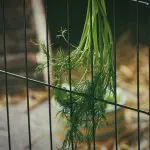Kava tea and kratom liquid, derived from plants with centuries-old cultural significance, offer natural stress relief and anxiety management alternatives. Kava, known as "the peaceful plant," contains kavalactones that interact with brain receptors, promoting calmness without drowsiness. Kratom liquid, a concentrated extract of Mitragyna speciosa leaves, provides similar relaxation benefits due to its alkaloids and essential oils. Both are effective for treating anxiety disorders, offering faster relief when consumed as extracts compared to traditional tea forms. Safe consumption practices, including consulting healthcare providers and purchasing high-quality products, are crucial for reaping the benefits of these herbal remedies while minimizing potential interactions and side effects.
“Discover the calming powers of Kava Tea, an ancient herbal remedy gaining modern popularity as a natural anxiety reliever. This traditional brew, steeped in history, offers a unique approach to stress and tension relief. We explore its origins, the science behind its relaxing effects, and how it differs from kratom liquid extractions.
From understanding its active compounds to practical dosage guidelines, this article covers everything you need to know about incorporating Kava Tea into your wellness routine for enhanced relaxation.”
- Understanding Kava Tea: Origins and History
- The Science Behind Kava's Relaxing Effects
- Kratom Liquid: Extraction and Potency
- Benefits of Kava for Anxiety and Stress Relief
- Safe Consumption Practices and Dosage Guidelines
- Incorporating Kava into Your Wellness Routine
Understanding Kava Tea: Origins and History
Kava tea, derived from the root of a plant scientifically known as Piper kava, has been a cherished herbal remedy for centuries, particularly in the Pacific islands where it originated. Often referred to as “the peaceful plant,” its history is deeply intertwined with cultural practices and traditional medicine. The islanders have long used kava as a social lubricant and a means to induce relaxation without causing drowsiness.
The plant’s journey outside its native region began in the 1800s when Western explorers discovered its unique properties. Over time, kava tea gained recognition globally for its potential anxiety-relieving and stress-reducing benefits. Today, it is widely available as a kratom liquid or in various forms, catering to those seeking natural alternatives for relaxation without the side effects often associated with pharmaceutical interventions.
The Science Behind Kava's Relaxing Effects
Kava tea, derived from the root of the Piper kava plant, has been a traditional remedy for relaxation and anxiety for centuries. Its calming effects are attributed to several active compounds, notably kavalactones. These compounds interact with various receptors in the brain, including gamma-aminobutyric acid (GABA) receptors, which play a key role in regulating nerve activity and promoting relaxation.
Research suggests that kava liquid, like kratom liquid, may help reduce anxiety and stress by enhancing GABA’s inhibitory effects on the nervous system. This interaction can lead to feelings of calmness without causing drowsiness. Additionally, studies have shown that kava can influence serotonin receptors, further contributing to its anxiolytic properties. Understanding the science behind these effects sheds light on why kava tea is increasingly recognized as a natural alternative for managing stress and promoting overall well-being.
Kratom Liquid: Extraction and Potency
Kratom liquid, derived from the leaves of the Mitragyna speciosa plant, is a popular herbal extract known for its potential relaxation and anxiety-relieving properties. The process of extracting kratom into a liquid form involves careful preparation to ensure potency and effectiveness. This method allows for precise dosing, as liquids can be measured with greater accuracy compared to other forms.
The extraction process typically starts with drying the fresh kratom leaves, followed by grinding them into a fine powder. This powder is then mixed with a solvent, often ethanol or water, to isolate the active compounds. After filtration, the liquid concentrate is obtained, capturing the plant’s essential oils and alkaloids responsible for its therapeutic effects. The potency of kratom liquid can vary based on factors like extraction methods, plant quality, and specific compound concentrations, making it crucial for consumers to purchase from reputable sources that provide transparency in their products.
Benefits of Kava for Anxiety and Stress Relief
Kava tea, derived from the root of the Piper kava plant, has been used for centuries in traditional medicine to promote relaxation and alleviate stress and anxiety. Its effectiveness lies in its unique blend of chemical compounds, including kavalactones, which are known for their calming properties. These compounds interact with the body’s serotonin receptors, contributing to a sense of well-being and reducing feelings of unease.
Unlike some other herbal remedies, kava stands out for its specific targetting of anxiety symptoms without causing drowsiness or impairment. Studies have shown that kava can help reduce symptoms of generalized anxiety disorder and social anxiety, making it a promising natural alternative to prescription medications. Moreover, when consumed as a kratom liquid extract, kava’s bioavailability is enhanced, allowing for faster and more efficient absorption, potentially offering even greater relief for those seeking an effective herbal remedy for their anxiety.
Safe Consumption Practices and Dosage Guidelines
When consuming kava tea as a herbal remedy, it’s crucial to adhere to safe consumption practices and dosage guidelines. Kava, scientifically known as Piper methysticum, is generally considered safe when used appropriately. However, like any herbal supplement, it’s essential to follow recommended dosages and be mindful of potential interactions with medications or other substances. Overconsumption or misuse may lead to adverse effects, so it’s advisable to start with lower doses and gradually increase as needed under professional guidance.
For kratom liquid, a popular form of kava, dosage varies based on the concentration and individual tolerance. Typically, a small serving (around 15-30 ml) is recommended for beginners, and adjustments can be made based on personal experience. It’s crucial to purchase high-quality products from reputable sources to ensure purity and consistency. Additionally, consulting with a healthcare provider before incorporating kava into your wellness routine is wise, especially if you have pre-existing health conditions or are taking other medications.
Incorporating Kava into Your Wellness Routine
Incorporating kava tea into your wellness routine can be a game-changer for stress and anxiety relief. This herbal drink, derived from the roots of the kava plant, has been used for centuries in the Pacific Islands for its calming properties. Kava is known to promote relaxation without drowsiness, making it an excellent alternative to prescription anxiolytics or other sedatives that can have unwanted side effects.
If you’re looking to explore natural solutions for managing stress and anxiety, considering a daily dose of kava tea could be beneficial. It’s readily available in various forms, including convenient kratom liquid extracts, making it easy to incorporate into your self-care practices. By adding a few drops to warm water or your favorite beverage, you can enjoy the soothing effects of kava at any time throughout the day.
Kava tea, with its rich history and scientific backing, offers a natural and effective approach to managing anxiety and stress. As we’ve explored, the unique compounds in kava work synergistically to promote relaxation without causing drowsiness or addiction. When extracted into kratom liquid form, these beneficial compounds become more accessible and potent, allowing for precise dosing and tailored wellness support. By incorporating kava into your routine, you can experience its calming effects and take a proactive step towards better mental well-being. Always remember to consume responsibly and consult with a healthcare professional if needed.






